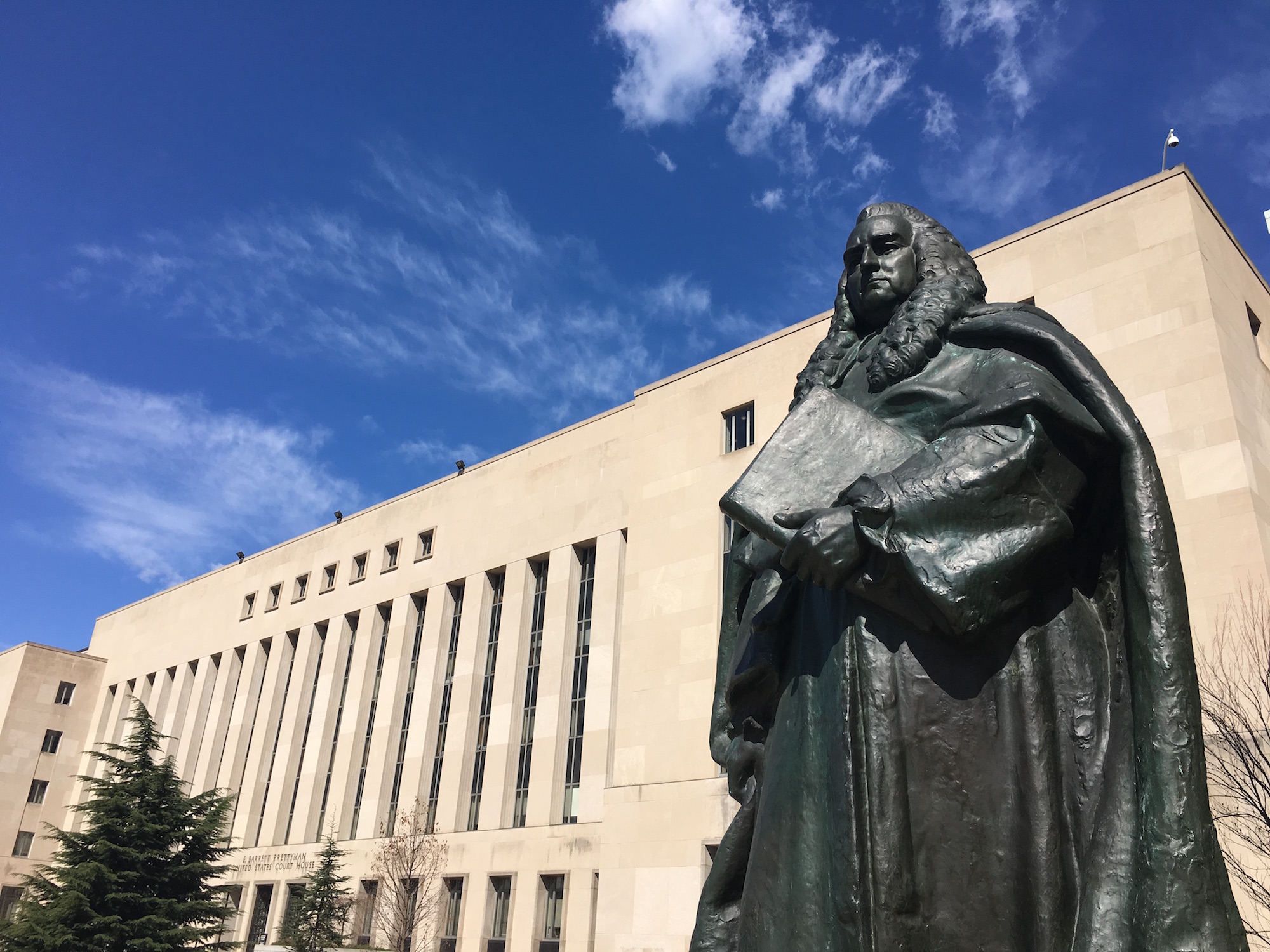It’s hard to believe but it’s been nearly two months since the very first tribal CARES Act case hit the court docket. A hearing at 1pm Eastern on June 12, 2020, brings the focus back to one of the most heated and divisive issues in recent Indian Country history.
At issue in the dispute is whether for-profit Alaska Native corporations are entitled to shares of the $8 billion coronavirus relief fund. The Trump administration believes the entities qualify, even though the issue never came up during two consultation calls with tribes on April 2 and April 9 despite top government officials knowing about it after they were contacted by lawmakers from Alaska, the administrative record shows.
After pleas to official Washington failed, a group of tribes filed the first complaint against the Trump administration. The plaintiffs in Confederated Tribes of the Chehalis Reservation v. Mnuchin have since been joined by Cheyenne River Sioux Tribe v. Mnuchin and Ute Indian Tribe of the Uintah and Ouray Indian Reservation v. Mnuchin.
The tribes won a huge decision on April 27. Judge Amit P. Mehta temporarily barred the Trump administration from distributing any payments from the $8 billion COVID-19 fund to Alaska Native corporations, holding that they are not “tribal governments” as defined by the Coronavirus Aid, Relief and Economic Security Act, also known as the CARES Act.

The E. Barrett Prettyman United States Courthouse houses both the federal court for the District of Columbia and the Circuit Court of Appeals for the District of Columbia Circuit. Photo by Indianz.Com (CC BY-NC-SA 4.0)
Still, the battle is not over. A final judgment has not been entered, so the hearing on June 12 will help Mehta bring a conclusion to the litigation, all while the coronavirus continues to affect Native Americans in the lower 48 states at disproportionate levels.
Even then, there is no indication the dispute will end. Alaska Native corporations, which provide services and programs for shareholders and their communities, have been allowed to intervene as defendants, so they could always appeal if Mehta rules against them.
So could the Trump administration, which at this point has not filed an appeal of the preliminary injunction entered on April 27. The 60-day deadline is approaching but even if the Department of Justice does not pursue a challenge, it could do the same once Mehta issues a final judgement in Chehalis.
Mehta could also change course and rule against the tribal plaintiffs, although his preliminary injunction indicated they are “likely to succeed on the merits.”
And even though the injunction is in place, the Department of the Treasury has set aside money for more than 200 Alaska Native corporations in the event they prevail.
Cherokee Nation Chief Chuck Hoskin: "Congress clearly intended these governments, not Alaska corporate interests, to utilize the limited amount of #CARESAct funds for recovery in Indian Country.”
Full statement on $8 billion #CoronavirusReliefFund👇https://t.co/2sfcOiShze
— indianz.com (@indianz) April 28, 2020
According to government attorneys, about $162.3 million was set aside for the Native corporations in early May, when the first round of payments went out. The figure accounts for about 3.4 percent of the $4.8 billion from the first round.
Based on representations made in court on June 11, an additional $371 million will be withheld from the Alaska Native corporations from the second distribution. That accounts for about 11.6 percent of the $3.2 billion remaining in the fund. Those payments are supposed to start going out on June 12.
Altogether, more than $533 million will be paid to more than 200 Alaska Native regional and village corporations should the litigation end in their favor. That accounts for about 6.7 percent of the entire $8 billion coronavirus relief fund.
The plaintiffs in Confederated Tribes of the Chehalis Reservation v. Mnuchin are:
- Confederated Tribes of the Chehalis Reservation (Washington)
- Tulalip Tribes (Washington)
- Houlton Band of Maliseet Indians (Maine)
- Akiak Native Community (Alaska)
- Asa’carsarmiut Tribe (Alaska)
- Aleut Community of St. Paul Island (Alaska)
- Navajo Nation (Arizona, New Mexico, Utah)
- Quinault Nation (Washington)
- Pueblo of Picuris (New Mexico)
- Elk Valley Rancheria (California)
- San Carlos Apache Tribe (Arizona)
The plaintiffs in Cheyenne River Sioux Tribe v. Mnuchin are:
- Cheyenne River Sioux Tribe (South Dakota)
- Rosebud Sioux Tribe (South Dakota)
- Oglala Sioux Tribe (South Dakota)
- Nondalton Tribal Council (Alaska)
- Native Village of Venetie (Alaska)
- Arctic Village Council (Alaska)
The third case is Ute Indian Tribe of the Uintah and Ouray Indian Reservation v. Mnuchin. The sole plaintiff is:
- Ute Indian Tribe (Utah)
The public can listen to the hearing by calling the following number and entering the following code:
- Toll Free Number: 877-848-7030
- Access Code: 3218747
Tuba City Regional Health Care Corporation (Navajo Nation)
HHS Small Ambulatory Program Awards $55 Million to 15 Tribes and Tribal Organizations (Indian Health Service)
Indian Health Service Announces New Deputy Director for Quality Health Care and Enterprise Risk Management (Indian Health Service)
Federal Emergency Management Agency (FEMA)
White House Office of Management and Budget (Joe Biden Administration)
Tuba City Regional Health Care Corporation (Arizona, Navajo Nation)
Oklahoma City Indian Clinic (OKCIC)
Indian Health Service (Department of Health and Human Services)
Navajo Nation Town Hall (Arizona, New Mexico, Utah)
Navajo Nation (Arizona, New Mexico, Utah)
Tribal organizations statement on advance appropriations for Indian Health Service
Indian Health Service Statement on Advance Appropriations (Department of Health and Human Services)
Indian Health Service (Department of Health and Human Services)
Indian Health Service (Department of Health and Human Services)
